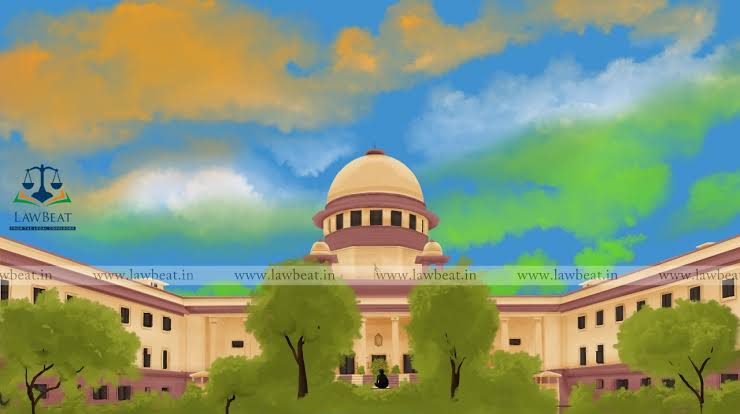Court Should Recognise The Potential Threat To Life & Liberty Of Victim/ Witnesses While Granting Bail: Supreme Court

The Supreme Court while recently setting aside the order of the Allahabad High Court granting bail to a person accused with respect to the offence punishable under Section 3 (1) of the U.P. Gangster and Anti-Social Activities (Prevention) Act, 1986 (“Act”), has observed that the Courts while granting bail should recognise the potential threat to life & liberty of Victim/Witnesses.
“There is no doubt that liberty is important, even that of a person charged with crime but it is important for the courts to recognise the potential threat to the life and liberty of victims/witnesses, if such accused is released on bail.”, the Full Judge Bench of the then Chief Justice SA Bobde, Justice AS Bopanna & Justice V Ramasubramanian.
In the present matter, an FIR was registered against the accused who was a contract killer & a sharp shooter u/s 120-B and 302 of the Indian Penal Code, 1860 & Sections 3 and 25 of the Arms Act, 1959 for killing the appellant’s husband.
The accused along with other persons operated an organized crime gang in Azamgarh that allegedly committed offences punishable under Chapters 16, 17 and 22 of the Indian Penal Code. The very purpose of the gang was to make physical and financial gains by committing innumerable crimes of serious nature. The gang instilled extreme fear and terror in the area where it operated thereby precluding persons from coming forward and lodging police complaints against its activities, or for that matter deposing in cases pertaining thereof.
The Allahabad High Court bail to the accused on verbal terms such as the execution of a personal bond to the satisfaction of the jail Authorities and the furnishing of sureties within a month of his release. Thereafter, the deceased’s wife approached this court.
The Bench thereafter observed that the High Court had overlooked several aspects, such as the potential threat to witnesses, forcing the trial court to grant protection.
“It is needless to point out that in cases of this nature, it is important that courts do not enlarge an accused on bail with a blinkered vision by just taking into account only the parties before them and the incident in question. It is necessary for courts to consider the impact that release of such persons on bail will have on the witnesses yet to be examined and the innocent members of the family of the victim who might be the next victims.”, the Court further observed in this regard.
Reference was made to the Apex Court judgement in Neeru Yadav vs. State of U.P. (2014) 16 SCC 508 in which it was observed that when a stand was taken that the accused was a history sheeter, it was imperative for the High Courts to scrutinise every aspect and not capriciously record that the accused was entitled to be released on bail on the ground of parity.
Reliance was also placed on the Supreme Court judgement in Ash Mohammad vs. Shiv Raj Singh (2012) 9 SCC 446 in which it was observed that when citizens were scared to lead a peaceful life and heinous offences were obstructions in the establishment of a well-ordered society, the courts play an even more important role, and the burden is heavy. It emphasized on the need to have a proper analysis of the criminal antecedents of the accused.
The Court thereafter, by allowing the appeal set aside the order of Allahabad High Court granting bail.
Case Title: Sudha Singh v. State of UP & Anr | Criminal Appeal No. 448 Of 2021
